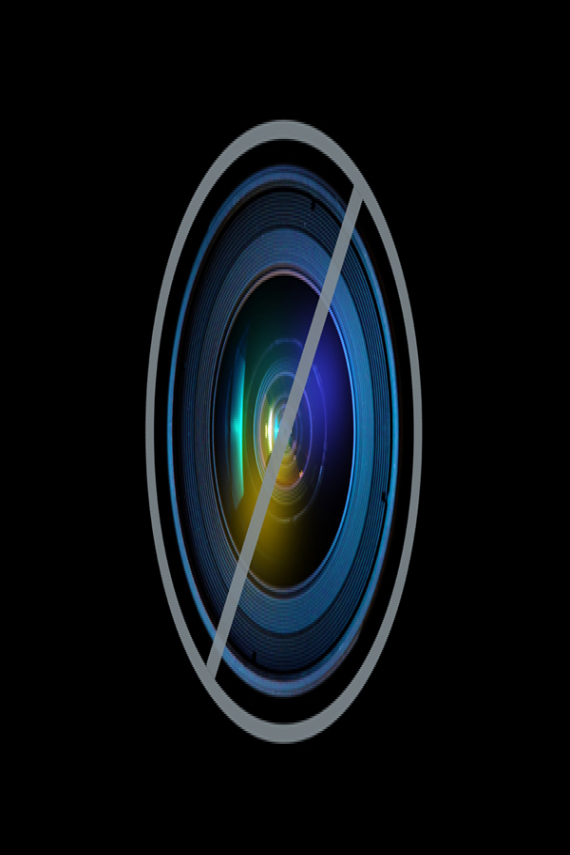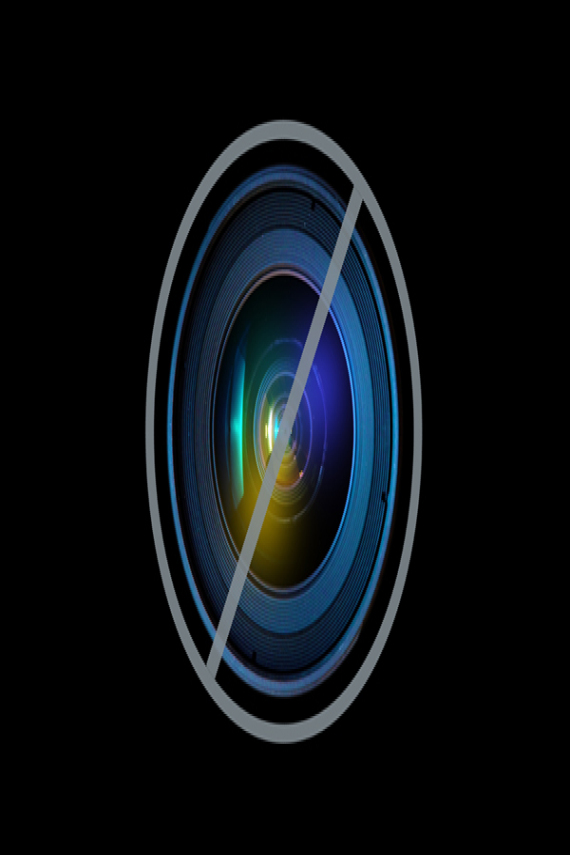
Callie Khouri knows how to write about women. She won an Oscar for best original screenplay for "Thelma & Louise", she wrote "Something To Talk About," starring Julia Roberts, and she adapted and directed "Divine Secrets of the Ya-Ya Sisterhood." In 2012, Khouri made the jump to TV and created ABC's "Nashville," an addictive dramedy that focuses on the careers and relationships of two successful female country stars (played by Hayden Panetierre and Connie Britton).
Fourteen episodes into the first season of "Nashville," HuffPost Women spoke with Khouri about why television is a great space for women right now, who she'd like to collaborate with "more than anything," and the (seemingly never-ending) discussion around "having it all."
All of your most talked-about projects -- “Thelma & Louise,” “Divine Secrets of the Ya-Ya Sisterhood,” “Nashville” -- have focused on female characters. What makes you want to write about women and direct female characters?
[Adult women] are a market that I feel is underserved in the entertainment population at large. I don’t see the kind of women represented that I know or that I’m attracted to. I really want to try to write more nuanced, less simplistic kind of stuff, and its hard to find a place to do that.
You’ve previously said that it’s easier to write complex female characters for TV than for film; that “you’re allowed to make things for women on television” that you can’t on film. What do you think it will take to get the film industry to where TV is right now?
I really hate to say it, but I don’t think it’s possible. I think you can do it in independent film, but I don’t think studios are ever going to do it. I just don’t think they have the will.
That’s so depressing.
Yeah, it’s terribly depressing, but it’s just a sad fact. Movie studios are owned by giant corporations. They care about money, they don’t care about movies. If they can figure out how to get women lined up on a Friday night around the block -- and I’m not talking about girls because they do have those people lined up around the block on Friday night for “Twilight” series and “Hunger Games” -- when they can figure out how to do that for adult women, then we’ll see [smart movies written about women]. Until that day comes, we won’t. That’s the hard reality.

After the first few episodes of "Nashville," one thing a lot of critics discussed was the adversarial relationship between Juliette and Rayna. Representing female competition in a way that doesn’t make women look catty seems like a pretty daunting task. Were you nervous that the Juliette-Rayna relationship in “Nashville” would come across in a way you didn’t want it to?
I think anytime you’re doing something you have to kind of be three steps ahead so that it’s not going to be interpreted in a way you don’t want it to. I mean sure, you can water [“Nashville”] down to its most simplistic form and say, "Yeah, it’s a competition between two women who are fighting for the same spot," but it’s really more about women in an incredibly competitive market, and how few spots there are and what you have to do to be relevant at any age in that market.
That’s much more interesting to me than two women who can’t stand each other. That story we’ve seen a thousand times. And it’s not the kind of thing I watch. I don’t watch any reality shows. I don’t watch “[The Real] Housewives" of Beverly Hills or New Jersey or any place, where women are pulling each other’s hair. I think it’s base entertainment. It’s female wrestling disguised as something else. I’m not into it.
The first season of “Nashville” is airing amid an ongoing conversation about whether women can “have it all.” Do you address that question in these characters' career struggles?
Well, I think the whole whether or not you can "have it all" idea itself is a strawman argument. I don’t know anyone male or female who can quote-unquote have it all. It’s a made-up idea. Men don’t have it all. They may have it better because they get paid more for the same work, but they don’t have it all. Men that are completely career-driven are missing all sorts of things in their kids’ lives. It’s always a struggle. It’s a struggle for men, and it’s a struggle for women.
Rayna and Juliette have been forced to work together recently, and you’ve said that they’re “stronger together.” Do you think that women have a responsibility in the real world to work together and to mentor each other?
Oh yeah, absolutely. I think it’s kind of the natural state of things. If women are in the workplace together, they’re doing that. I’m very fortunate because every situation I’ve ever worked in has had a lot of women in it. So I learned from them, they learned from me, [and] then it goes on like that. The day that we don’t have to address these things as gender issues will be the day that real equality is reached.
Given that you’re so immersed in the world of country music right now, do you have any thoughts on the backlash Taylor Swift has faced for writing songs about her relationships?
If I could have the kind of backlash that caused me to be #1 on the charts for months and months at a time and have sold-out concerts for the next however many years -- that’s the kind of backlash I could live with. If that’s what she wants to write about, God love her, I support it. It’s obviously speaking to the audience she’s trying to reach.

“Divine Secrets of the Ya-Ya Sisterhood” is sort of the ultimate example of what publishers call "women’s fiction." It’s very emotional, very much about family connections and the relationships between women. Did you have any qualms about taking on a slightly softer story after “Thelma & Louise”?
I did. I worried that I would be pigeon-holed into only writing stories about women, and of course, that's exactly what happened. I spent several years with my nose out of joint about it, but then my brilliant friend Jessie Nelson pointed out that there are so few stories focused on women, that if I didn't do it, it would be one less voice out there making the case that women's stories are every bit as compelling and worth telling as stories about men. It was so logical and so true, that in that moment, I embraced it.
I also realized that if I wanted to see women represented in a way I found true, respectful, honest and more like women I actually know, I was going to have to write them myself. That doesn't mean I want to write only perfect, heroic characters by the way. I like writing flawed women, and being one, it's something I feel I can write with some veracity and authority.
So... what did you think Seth MacFarlane’s performance hosting the Oscars?
I think if people expected the guy behind “Family Guy” and “Ted” to be anything other than irreverent, they were deluding themselves. As for the "I Saw Your Boobs" song, I guess I felt like it was a humorous attempt at a sad truth, which is, no matter how true female frontal nudity is to the story or the character, eventually it's going to end up on a website for guys to masturbate to. That said, I didn't find it much more offensive than playing "I Am Woman" when Katherine Bigelow won her Oscar for directing. I'm almost numb to misogyny at this point. It's just everywhere.
You told Vulture that you’re a fan of HBO’s “Girls” and Lena Dunham. Would you ever want to collaborate with Dunham?
Almost more than anything. I wonder if she's on any celebrity boob sites?
This interview has been edited and condensed.

